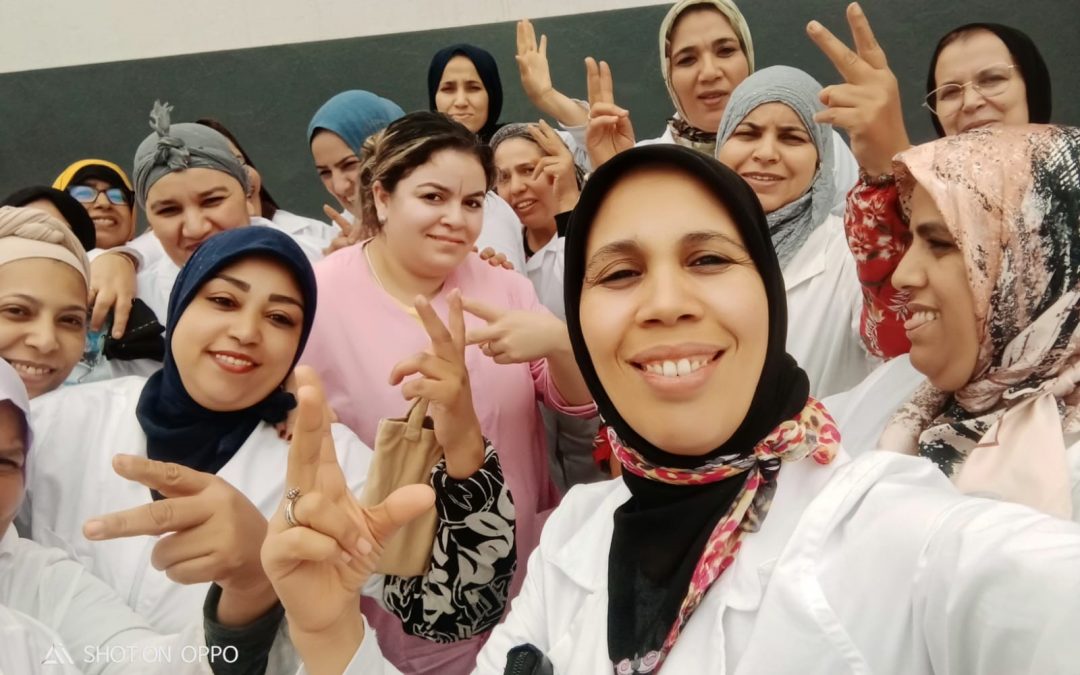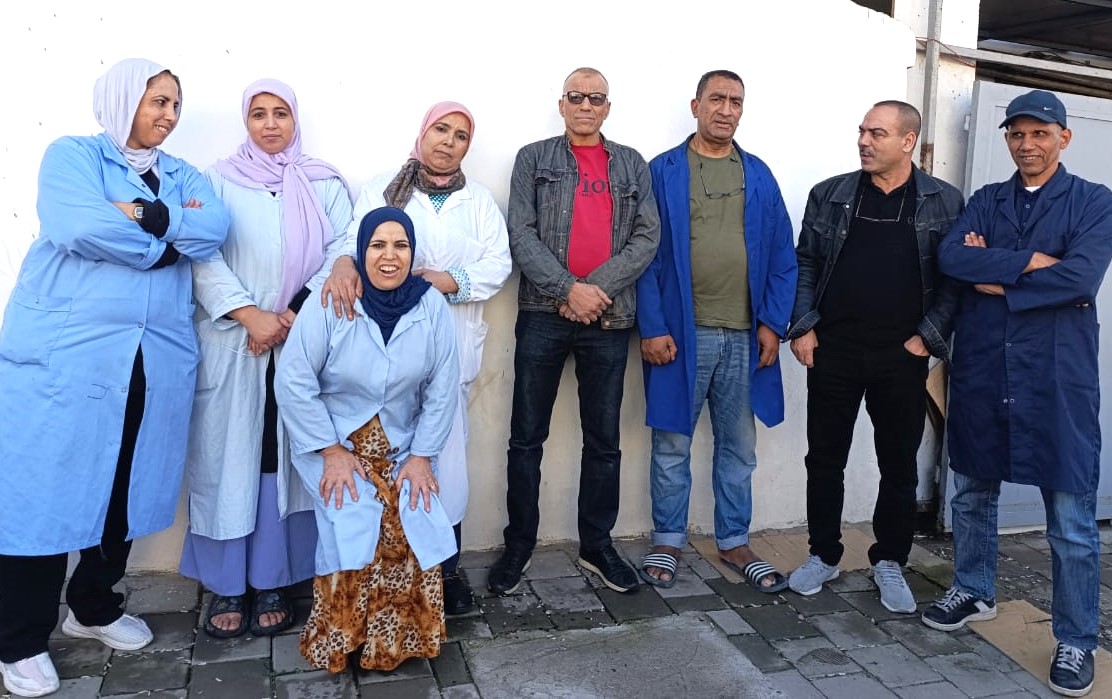
Morocco Textile Workers Achieve Dignity, Worker Rights
Nearly 2,000 workers at textile factories in Casablanca, Morocco, now can receive decent pay, health care protection and a voice on the job after joining the Moroccan Workers’ Union (UMT) and the federation of textile workers.
“We joined the union primarily to preserve our dignity, which some managers have trampled on,” said one worker, who voted for the union. (Names are not used to protect workers’ privacy.)
All 605 workers in three factories in Casablanca and the majority of the more than 1,000 workers in four additional factories in the area’s large textile industry joined the union.

With a union, workers at textile factories are able to address workplace safety and GBVH. Credit: Hicham Ahmaddouh
Without a union, said one worker, “we couldn’t find solutions to our issues or secure our legal rights, which the company has neglected for more than five years.”
Workers at the leather, textiles, and ready-made garment factories are involved in leather production, sewing, dyeing, supplies and garment manufacturing. They say they often were not paid wages, and received insufficient compensation when often required to work overtime—or engage in fewer hours than specified by the government.
“Wage payments are often delayed, and we only receive them after striking and protesting,” one worker stated when describing conditions before the union representation.
Another worker described being “required to work up to 240 hours a month instead of the legal 191, which should qualify as overtime, yet we receive no compensation.”
Developing Outreach
Achieving success in mobilizing and assisting textile workers to form unions was part of a two-year campaign involving Solidarity Center support in providing data and analysis of key employers, supply chains and other information.
Together with the UMT, the Solidarity Center trained a team led by two women and one man to head up the organizing drive. Over the past year, the team conducted one-on-one outreach at the factories, located in a difficult to access industrial zone. They met with company officials, organized offsite outreach meetings and collected worker stories about their needs and challenges in accessing their fundamental rights.
The outreach effort is essential for expanding the union’s efforts to broaden worker rights.
“Organizing textile workers is crucial to strengthening the union’s capacity to advocate for workers’ rights, secure demands and build solidarity within the Moroccan Labor Union and the National Union of Textile, Leather, and Ready-Made Garment Workers,” said Al-Arabi Hamouk, general secretary of the National Federation of Textile, Leather and Ready-Made Garment Workers.
Textile workers sought improved occupational health and safety in the factories and wanted to ensure the companies’ adherence to labor laws and payment to the country’s social protection fund
“Since 2023, we have been deprived of health coverage because the company hasn’t paid the required contributions, even though they are deducted from our wages,” one worker said.
By forming a union, abuses such as violence and harassment could be addressed, according to a factory worker.
She said in the past, workers suffered “from verbal and sexual harassment by some managers, as well as arbitrary individual and collective dismissals when demand decreases or when we ask for our legal rights.”
“The Solidarity Center played a critical role in the success of the campaign within the textile sector,” said Hamouk. “The organizing team demonstrated the ability to strategize, and address challenges.”
Assisting textile workers in forming unions moves forward their ability to achieve decent wages, safe workplaces and essential health care coverage—and advances their democratic rights to freely form unions.
Said one union member: “We achieved dignity and the freedom to associate, which was previously denied.”
